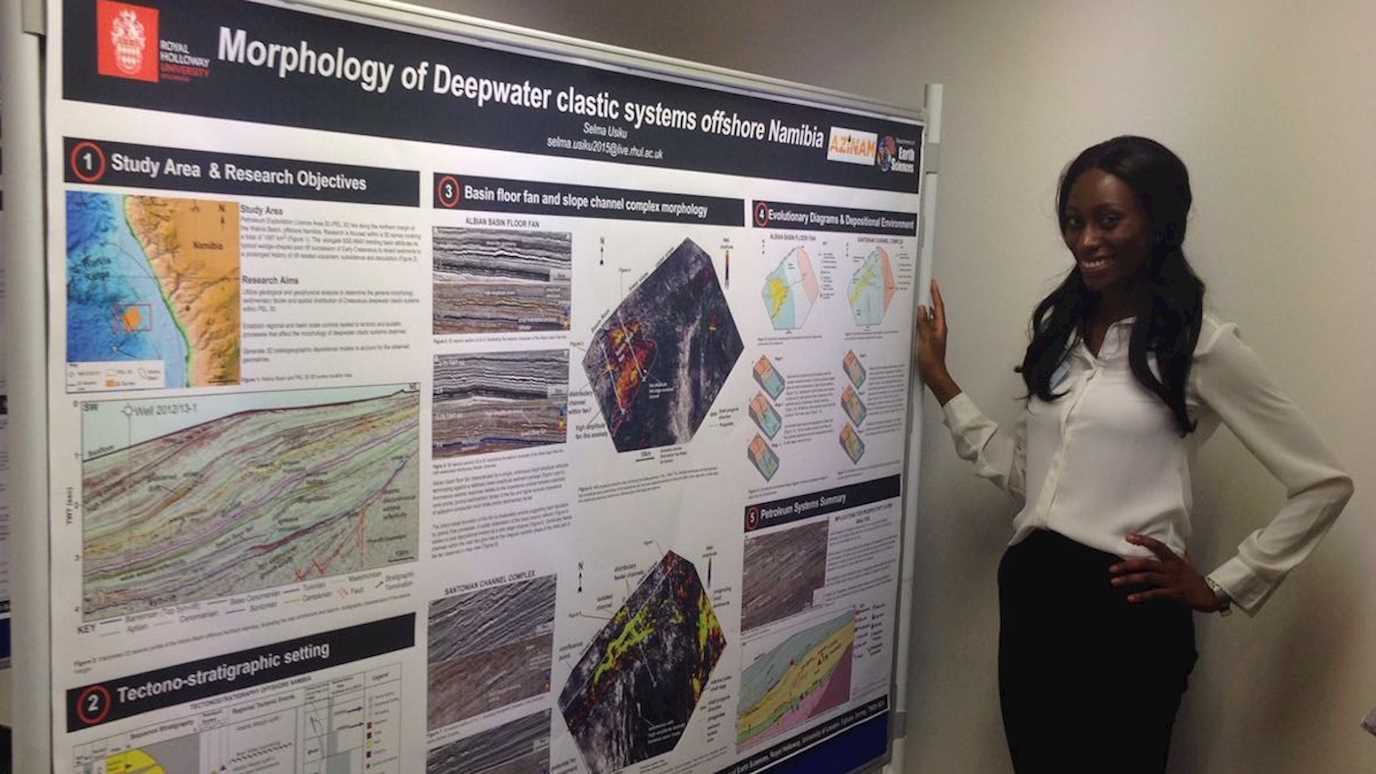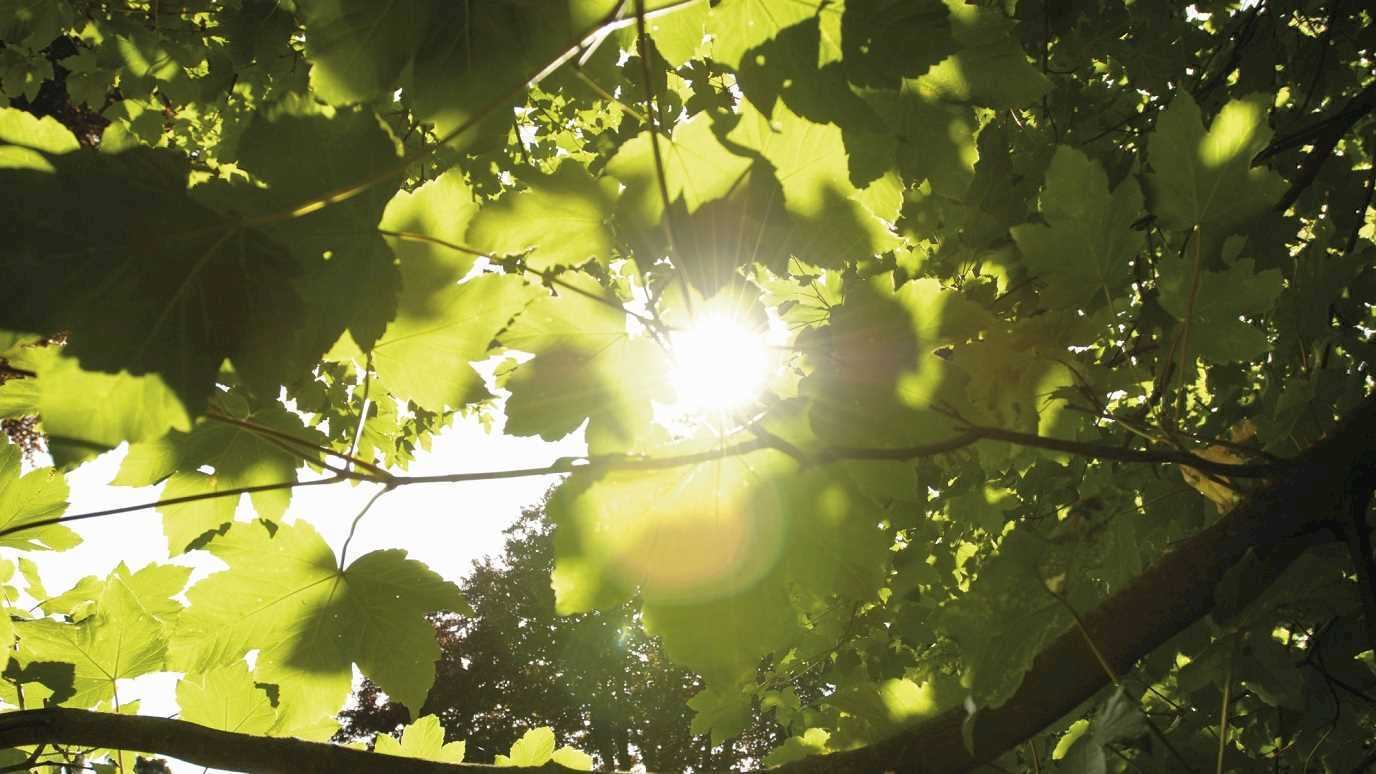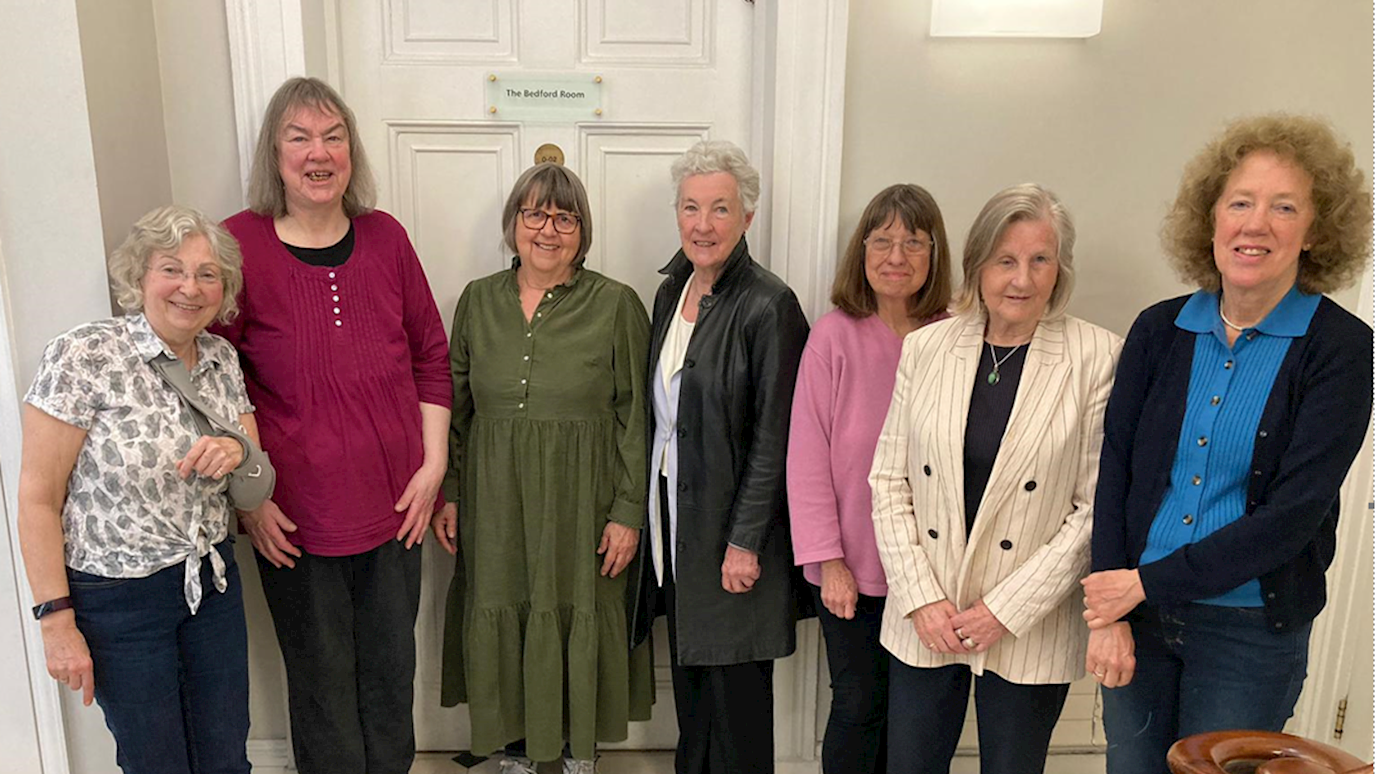The global energy sector has been a male dominated industry for many years. However one Royal Holloway alumna, Selma Usiku, is a leader in the field. An experienced exploration geologist in the Namibian oil and energy industry and an inspiring example of hard work and determination, Selma is seen as a role model for young women looking to enter the industry.

Selma studied MSc Petroleum Geoscience at Royal Holloway following recommendations from alumni friends and colleagues in Namibia. “Royal Holloway is renowned for producing and initiating quality research within the petroleum industry,” Selma says. “My colleagues’ personal accounts of the comprehensiveness of the course as well as the enjoyable year spent as an international student there made my decision to enrol very easy.”
Despite a demanding year, Selma credits the support of the Petroleum Geoscience with developing her confidence she reflects in her work place to this day. “It took quite some time to get comfortable with asking for guidance or advice during the course,” she says “but the open and encouraging attitude of staff gave me the confidence to boldly debate with others or challenge my own conventional thinking at times. The courage to speak up without fear of rejection or of having your ideas dismissed, especially as a female in a male dominated industry, was a significant confidence booster for me.”


After graduating in 2016, Selma returned to Namibia and joined Azinam as an Exploration Geologist. Azinam is a leading independent Southern-Africa Atlantic Margin focused oil and gas exploration company, currently chasing enormous untapped hydrocarbon potential offshore Namibia and South Africa. She is the only female geo-scientist at the company and since joining, has provided mainly geo-technical input on various hydrocarbon exploration projects, acreage evaluation and prospect generation work. She has also showcased Namibia’s hydrocarbon potential through technical presentations and panel discussions at various conferences and seminars.
“Due to the fact that Namibia’s oil and gas industry is still in its infancy, I have had the unique opportunity to see exploration from initial reconnaissance efforts to final well drilling,” Selma explains. “It has been so fulfilling to be in a position where I can apply my acquired skills ‘on the job’ every day and to do so under the tutelage of geologists and geophysicist who have been doing this kind of work for decades in different petroleum-rich basins across the globe!”
Selma was the deserved recipient of the prestigious Global Women Petroleum & Energy Club Award for Excellence in Africa in 2018. The Frontier Energy Network presents this award annually to an individual that has demonstrated excellence in Africa’s oil and gas sector and is a role model for young women looking to enter the industry. “Receiving the award was an incredibly humbling milestone not only personally but for the industry in general,” Selma says. “We have reached a point where fewer women have to fight for a place in the classroom, or even for the right to work, but today they are fighting being side-lined in traditionally male-dominated fields because of poor representation. If my small contribution can inspire young Africans, specifically women, to tip that scale by taking an interest in Science, Energy and Technology fields, then I am encouraged to remain consistent in my journey.”
In addition to her geotechnical work, Selma also hosts a weekly television talk show called Tupopyeni live on the Namibian Broadcasting Corporation, NBC. Tupopyeni which means ‘Let’s Talk’ is a popular and powerful platform where Namibians can engage invited guests and experts on a number of social and contemporary issues ranging from mental health, gender- based violence, financial literacy, early childhood development, cancer and much more.


Selma has some key advice for young people looking to enter the oil and energy industry. “There are many conflicting ideas about the future of oil and gas exploration amidst a very real climate change dilemma and net zero goals set by many leading organisations in my industry,” she says. “However, I wouldn’t be discouraged about pursuing a career in oil and gas. For as long as the world strives for economic growth, the key demand drivers derived from industrial and transportation sectors, there will be a need for experienced geoscientists in this field. In fact this may be the perfect time for students to think about how they can be more innovative and diversify their qualifications to reflect the ever-evolving nature of energy demands and contribute to the search of untapped resources.”
In recognition of current climate discussion, there is a need to expand the energy mix to low-carbon sources whilst securing supply from traditional resources. Consequently, Royal Holloway's internationally-recognised vocational Petroleum Geoscience programme is developing into our new MSc Energy Geosciences to reflect our timely academic transition to a broader geoscience training, encompassing traditional and renewable energy resources. The MSc in Energy Geosciences provides the ideal training for a career in the hydrocarbon and renewable industry and growing low carbon energy industry. Find out more.
























